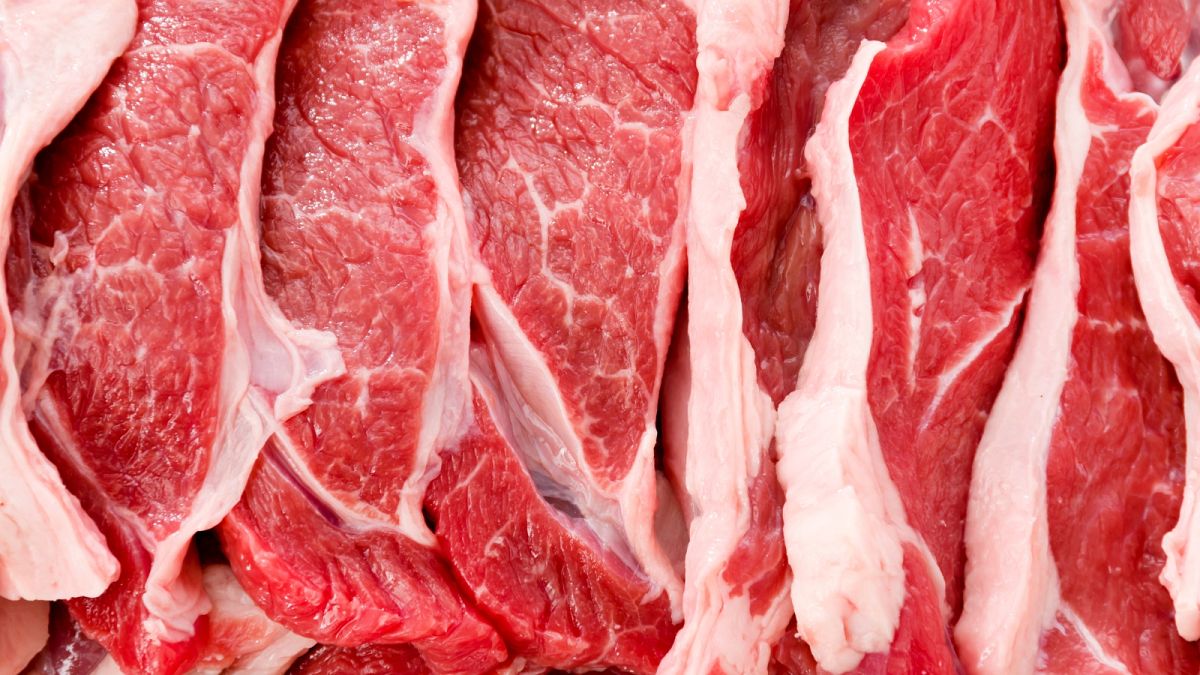Could consuming large amounts of processed red meat be bad for your brain? New research suggests it might.
Eating large amounts of red meat could be linked to an increased risk of dementia and cognitive decline, according to a new study.
Research has already linked consuming red meat to an increased risk of conditions such as cardiovascular disease and Type-2 diabetes.
For the new study, scientists from the healthcare system Mass General Brigham, Harvard University, and the Massachusetts Institute of Technology (MIT) in the US analysed data from thousands of patients between 1980 and 2018.
They found that cognitive ageing was accelerated by around 1.6 years per average serving of processed red meat, with a serving being roughly 85 g.
Replacing one serving of processed meat with nuts and legumes was also associated with a 19 per cent lower risk of dementia and a 21 per cent lower risk of self-reported cognitive decline, researchers estimated.
Their findings were published in the journal Neurology.
“Dietary guidelines tend to focus on reducing risks of chronic conditions like heart disease and diabetes, while cognitive health is less frequently discussed, despite being linked to these diseases,” Daniel Wang, an assistant professor of nutrition at Harvard and the study’s corresponding author, said in a statement.
“We hope our results encourage greater consideration of the connection between diet and brain health,” he added.
While the study’s methodology is quite strong, it remains observational.
“It is never possible to be certain about what is causing what from single observational studies, however large and however well conducted,” Kevin McConway, an emeritus professor of applied statistics at The Open University in the UK, who didn’t take part in the study, told Euronews Health.
Reducing red meat consumption
The new study compared rates of dementia in a group of people who ate processed red meat, with others who were similar to the first group but ate one fewer serving a day of processed red meat and one more serving of other protein sources, McConway explained.
“These estimates do not tell us directly what would happen in a group of people who actually changed their diet to eat less processed red meat and more poultry or nuts. The effect of doing that might well be similar to the estimates in the paper, but it could be different,” he added.
A brief by the non-profit EAT, which pools scientific evidence to provide dietary guidelines, and the journal the Lancet advises people not to consume more than 98 g of red meat (pork, beef, or lamb) per week for both ecological and health reasons.
“Existing food recommendations on red meat, do typically already suggest reducing consumption of red meat, and replacing it with other foods, though their stated reasons for that recommendation involve other associations between red meat consumption and adverse health outcomes,” McConway said, referencing the links between red meat consumption and bowel cancer and/or cardiovascular disease risk.
Both the study’s authors and McConway emphasised that there is a need for further research.
“We are continuing to piece together this story to understand the mechanisms causing dementia and cognitive decline,” Wang said.
Checkout latest world news below links :
World News || Latest News || U.S. News
The post Scientists link eating red meat with increased dementia risk appeared first on WorldNewsEra.

